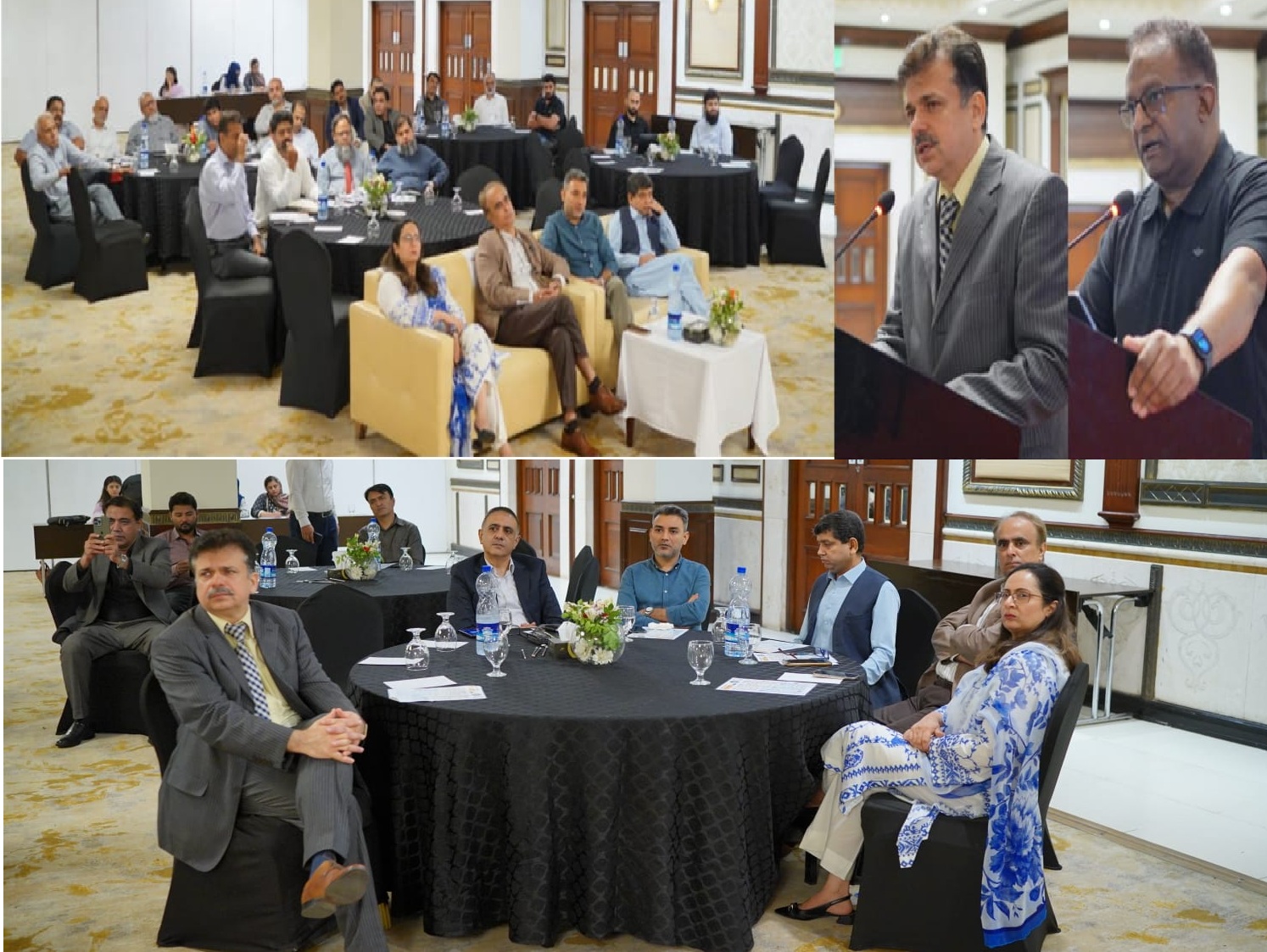Workshop on NEV Policy 2030 Held in Karachi to Promote Eco-Friendly Transportation
Karachi:
The Ministry of Industries and Production organized a workshop in Karachi today to discuss and promote the implementation of Pakistan’s New Energy Vehicle (NEV) Policy 2025–30.
The event was attended by Mr. Asif Saeed Lughmani, Additional Secretary of the Ministry, and Mr. Khuda Bux Rind, Chief Executive Officer of the Engineering Development Board (EDB). The session focused on the vision, scope, and strategic benefits of transitioning to electric vehicles under the NEV Policy.
Speaking at the event, Mr. Lughmani underscored that the primary aim of the NEV Policy 2030 is to reduce Pakistan’s dependency on imported oil and to shift toward clean, sustainable energy sources in the transport sector. He highlighted the economic and environmental challenges posed by unchecked oil consumption and stressed the need for urgent action.
He pointed out that Pakistan is among the countries most at risk from climate change, and the NEV Policy represents a key national initiative to mitigate these risks through green mobility. Mr. Lughmani emphasized the need for strong coordination between federal and provincial governments to ensure the effective rollout of the policy.
In line with Prime Minister Shehbaz Sharif’s directives, Mr. Lughmani is visiting provinces to build consensus and strengthen cooperation across all levels of government. He also noted that the government is actively involving the private sector, having already issued 61 licenses for local NEV production.
He added that 90% of NEV manufacturing will be localized, which will boost technical capacity and create over 15,000 jobs across the country.
Mr. Khuda Bux Rind spoke about the economic and technological opportunities NEVs present and reiterated EDB’s full support in developing this emerging sector.
As part of the NEV Policy 2030, the government will offer significant financial incentives: Rs. 65,000 for electric two-wheelers, Rs. 400,000 for three-wheelers, and Rs. 150,000 for four-wheelers. The State Bank of Pakistan will also introduce green auto financing to make electric vehicles more accessible.
Additional incentives include free NEV registration and toll tax exemptions. Under Vision 2030, the goal is to convert 30% of all vehicles on Pakistani roads to electric. To support this transition, 3,000 charging stations will be established nationwide. These measures are projected to save the country one billion dollars and two billion liters of fuel each year.



Comments (0)